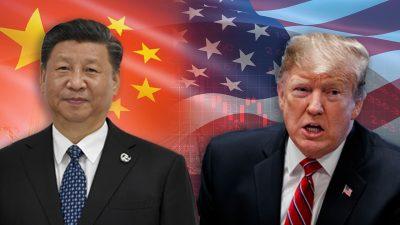'No difference' between US and China on trade deal, officials insist
The U.S. and China may be more in sync regarding recent trade negotiations than originally thought.
While some experts have already cautioned that expectations for the tentative agreement celebrated by the White House on Friday, which calls for Beijing to ramp up agricultural purchases to as much as $50 billion, may exceed reality, the two governments insist they made legitimate progress.
"There is no difference," spokesman Geng Shuang said in remarks posted by China's government Tuesday, describing the parties as unanimous on a deal. "This economic and trade agreement will be of great significance, beneficial to China, the United States and the world."
The world's largest economies reached a "fundamental agreement" during the talks, U.S. Treasury Secretary Steven Mnuchin insisted on Monday.
The comments followed scrutiny from analysts and economists who pointed out that negotiators had delayed the trickiest issues for future talks and produced no documentation for the pact. While tariff increases set for Oct. 15 were delayed, the U.S. is still slated to impose levies on another $160 billion in Chinese goods in mid-December.
Friday's announcement was "a nothing-burger," said Scott Kennedy, who analyzes China's economy at the Center for Strategic and International Studies. "I call it the 'Invisible Deal.'... The only thing that happened Friday was that the U.S. delayed the tariff increase."
Mnuchin said he anticipates shelving the Dec. 15 tariffs because the agreement will be completed before then.
"We made substantial progress," the treasury chief told CNBC. "China has agreed on agriculture that they're gonna take off tariffs," imposed in retaliation for duties that President Trump slapped on the country in 2018, initiating a trade battle that ramped up costs for U.S. businesses and rattled global markets.
The Chinese levies were a particularly sore point for U.S. growers, many of whom supported Trump in 2016 and were hurt by the loss of Chinese markets for their products.
Geng also addressed agricultural purchases by Chinese enterprises.
"According to the preliminary information, the agricultural products purchased by Chinese enterprises from the United States this year include: 20 million tons of soybeans, 700,000 tons of pork, 700,000 tons of sorghum, 230,000 tons of wheat, and 320,000 tons of cotton. China will also speed up the procurement of US agricultural products," Geng said.
But the celebration may be short-lived as the U.S., the world's largest importer, is still considering whether to impose tariffs on foreign automobiles and European goods like cheese and whisky. Trump, who has described himself as a "tariff man," says the duties are an effective negotiating tool with world governments and level an uneven playing field.
The U.S.-Mexico-Canada agreement, his administration's overhaul of the Clinton-era North American Free Trade Agreement, has yet to be ratified by Congress, however. That process became thornier when Democrats regained control of the House of Representatives in 2018 mid-term elections.
CLICK HERE TO READ MORE ON FOX BUSINESS
FOX Business' Brittany De Lea contributed to this report.




















